Cherry blossoms are an iconic symbol of Japan, known for their ethereal and captivating beauty. Join us as we delve into the world of these exquisite flowers and uncover fascinating facts about them!
1 What are Japanese Cherry Blossoms?
Origin and Significance of Japanese Cherry Blossoms
Japanese cherry blossoms, or Sakura, belong to the family of stone fruits, including plums and peaches. Their scientific name is Prunus cerasoides. While the origin of cherry blossoms is still widely debated, Japan is undoubtedly the first country that comes to mind when we think of these beautiful flowers.
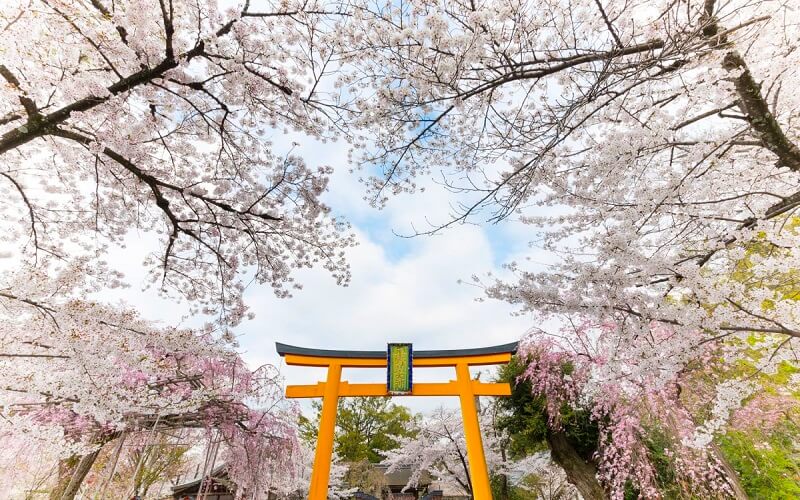 Japanese cherry blossoms are part of the stone fruit family, which includes plums and peaches.
Japanese cherry blossoms are part of the stone fruit family, which includes plums and peaches.
Cherry blossoms are deeply rooted in Japanese culture and symbolize the spirit of bushido, the way of the Samurai. The vibrant clusters of blossoms represent unity, strength, and unwavering dedication to their nation. Additionally, cherry blossoms embody humility, purity, and perseverance in the face of adversity.
The delicate pink blooms of the cherry blossom also signify youth, vitality, and the fleeting nature of life. The color pink represents love, romance, and a fresh start, while white blossoms symbolize purity, and violet hues convey royalty and elegance.
Characteristics and Classification of Japanese Cherry Blossoms
Cherry blossom trees are tall, woody perennials that can grow up to 10-15 meters in height. Their branches are numerous, and their trunks are brown, brittle, and easily breakable. The leaves are oval-shaped with serrated edges, and they bear flowers in clusters of 3-5 blooms.
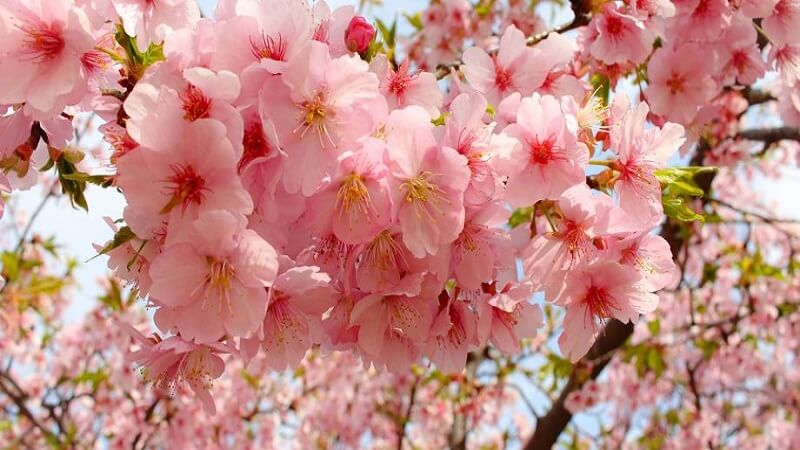 Cherry blossoms bloom in clusters of 3-5 flowers, with petals arranged in a concentric pattern.
Cherry blossoms bloom in clusters of 3-5 flowers, with petals arranged in a concentric pattern.
The blossoms come in various shades of white, pink, and violet, and their blooming season is short, typically lasting only 7-15 days during spring. Among the many varieties of cherry blossoms in Japan, the most common are Somei Yoshino, Yamazakura, Kawazu zakura, and Somei Yoshino, the latter being the most widespread and easily recognizable throughout the country.
2 Benefits and Uses of Japanese Cherry Blossoms
Skincare and Beauty
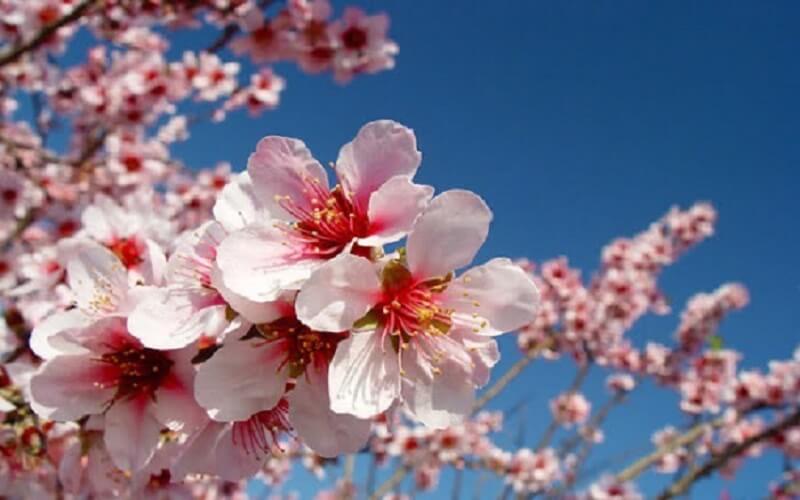 Cherry blossoms have skincare benefits and are known to improve skin texture.
Cherry blossoms have skincare benefits and are known to improve skin texture.
Cherry blossoms have been used in skincare and beauty rituals since ancient times. Modern research has revealed that extracts from cherry blossoms are rich in antioxidants, which help reduce the appearance of age spots and freckles, brighten the skin, and prevent signs of aging.
Culinary Delights
Pickled Cherry Blossoms
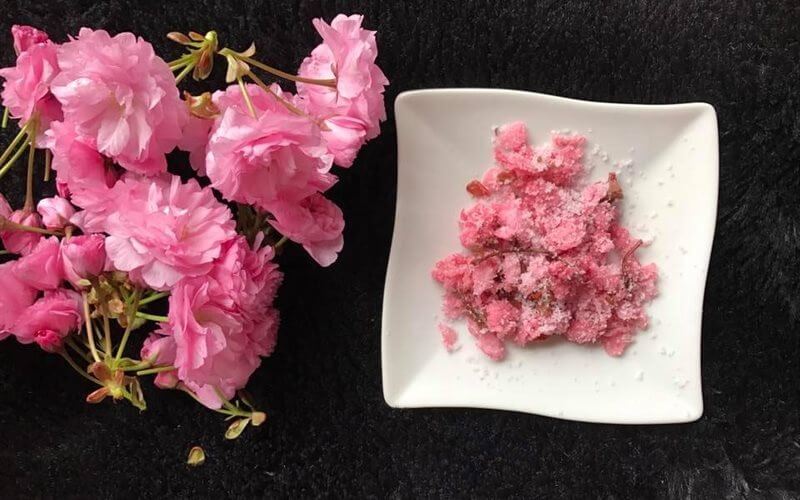 Pickled cherry blossoms are a famous delicacy in Japan.
Pickled cherry blossoms are a famous delicacy in Japan.
Pickled cherry blossoms, or sakurazuke, are a renowned delicacy in Japan. The pickling process is intricate and begins with selecting blossoms that are three-quarters open and still attached to their stems. These blossoms are then carefully washed, air-dried, and sprinkled with salt before being left to rest overnight.
Cherry Blossom Tea
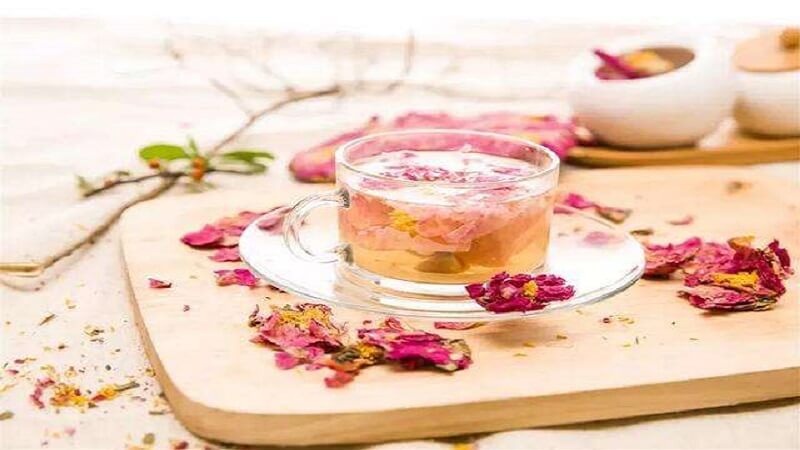 Cherry blossom tea has a distinct flavor and aroma.
Cherry blossom tea has a distinct flavor and aroma.
Cherry blossom tea, or sakurayu, is made from these pickled blossoms, imparting a unique flavor and fragrance to the beverage. The tea captures the essence of the blossoms, offering a delicate, slightly salty taste. Locals also enjoy a special blend of cherry blossom tea with green tea, creating a subtle salty-sweet fusion.
Cherry Blossom Liquor
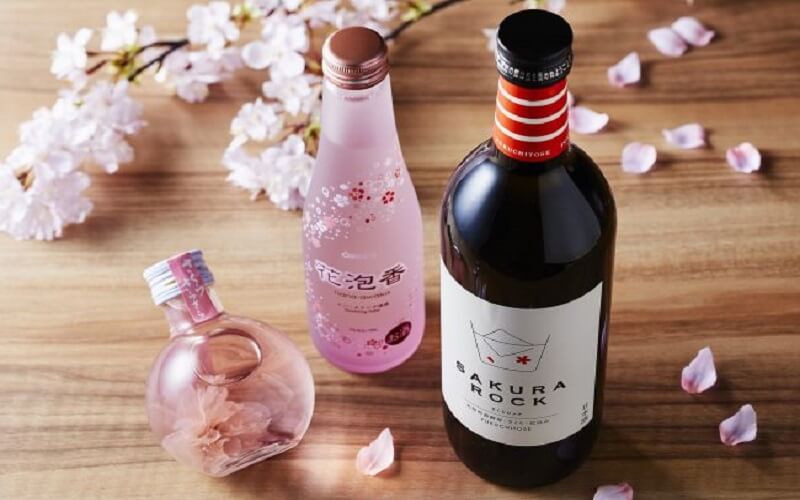 Cherry blossom liquor is a unique alcoholic beverage in Japan.
Cherry blossom liquor is a unique alcoholic beverage in Japan.
Cherry blossom liquor, or sakurayu-shu, is an integral part of Japanese cuisine. This alcoholic beverage, with its subtle floral notes and a hint of spice, is a must-have during cherry blossom festivals and celebrations.
3 How to Grow and Care for Japanese Cherry Blossoms
Growing Japanese Cherry Blossoms
There are several methods for growing cherry blossoms, but the simplest one is through seed germination:
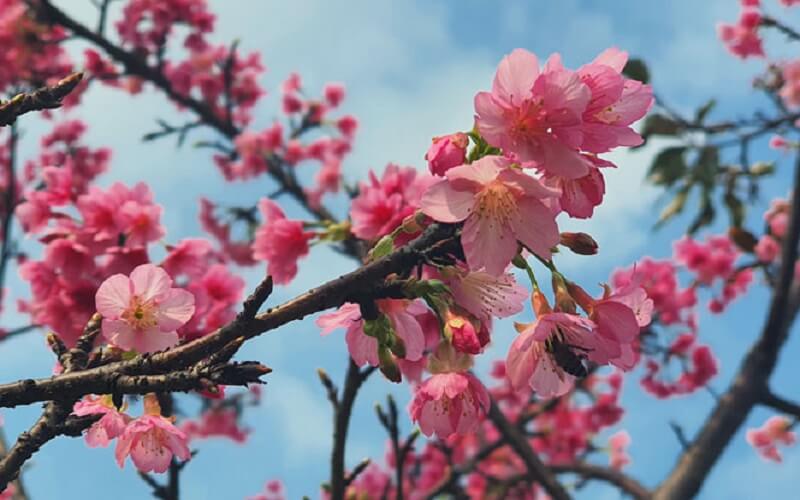 Soak cherry blossom seeds in water for two days before planting for optimal results.
Soak cherry blossom seeds in water for two days before planting for optimal results.
- For the best results, soak the seeds in clean water for two days, rinse them, and then bury them in sand for almost a month or longer until the seeds crack open.
- Once the seeds have been prepared, plant them 3-4 cm apart, with the pointed end facing upward, and cover them with a thin layer of soil (about 1-2 cm). As cherry blossoms thrive in sunlight, ensure they are planted in a bright spot.
Caring for Japanese Cherry Blossoms
 Maintain moderate moisture levels for optimal growth of cherry blossom trees.
Maintain moderate moisture levels for optimal growth of cherry blossom trees.
To ensure the healthy growth of your cherry blossom tree, monitor moisture levels and maintain moderate humidity. After a month, when new roots begin to form, provide the tree with its first fertilizer boost by mixing NPK and urea and watering the solution around the tree’s base.
Repeat this fertilizing process every 30 days, for a total of five applications. Regularly remove weeds and mound soil around the tree to prevent soil erosion.
Important Care Tips for Japanese Cherry Blossoms
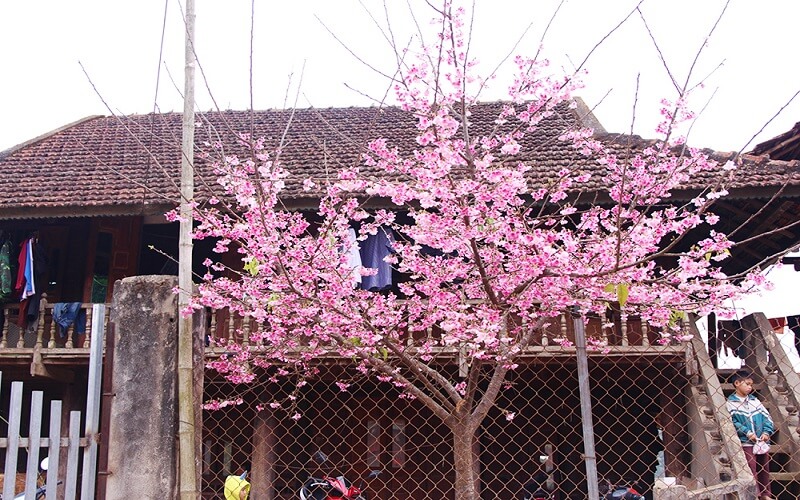 Plant cherry blossom trees in well-drained areas to prevent waterlogging.
Plant cherry blossom trees in well-drained areas to prevent waterlogging.
When planting and caring for cherry blossom trees, choose a location with good drainage to prevent waterlogging, as the trees can succumb to root rot if exposed to excessive moisture. Therefore, maintain dry soil and consider planting in an area with natural water runoff.
4 5 Stunning Photos of Japanese Cherry Blossoms
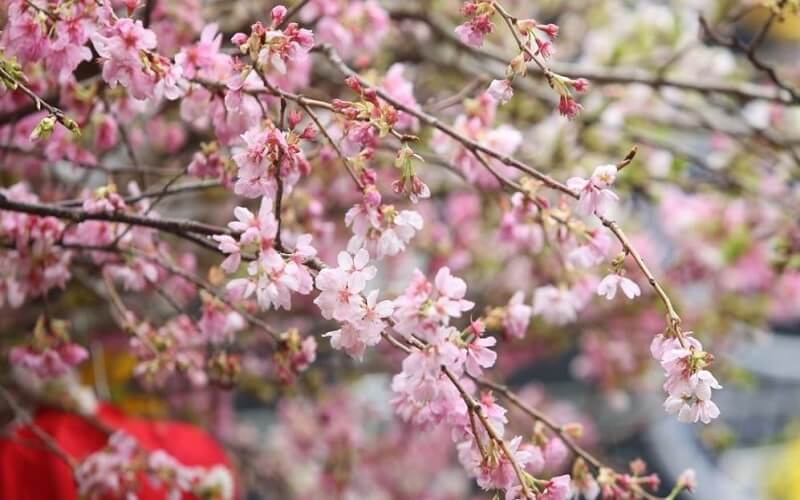 Cherry blossoms exude elegance and grace.
Cherry blossoms exude elegance and grace.
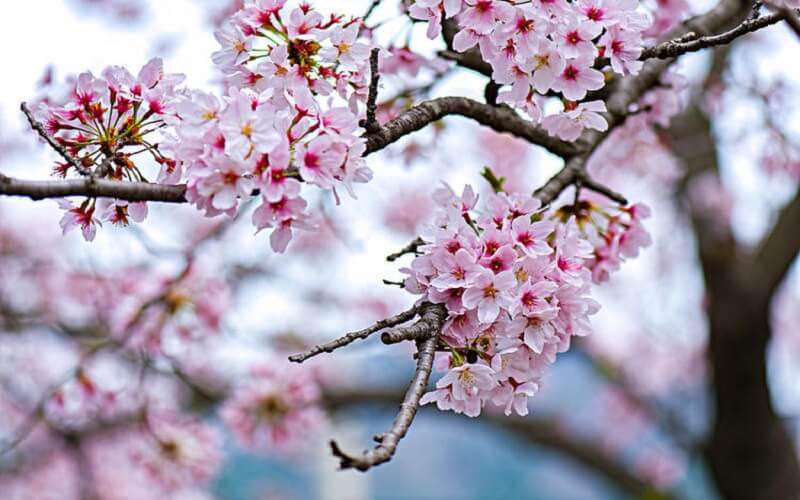 Cherry blossoms embody vitality and life.
Cherry blossoms embody vitality and life.
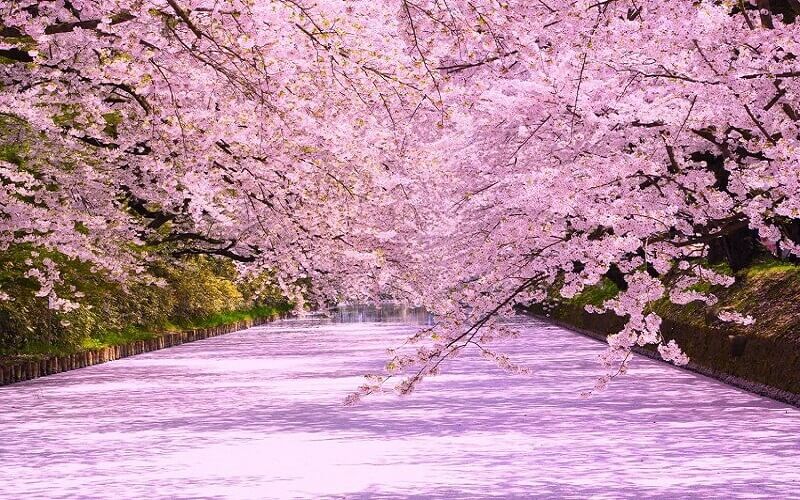 Cherry blossoms create breathtaking landscapes.
Cherry blossoms create breathtaking landscapes.
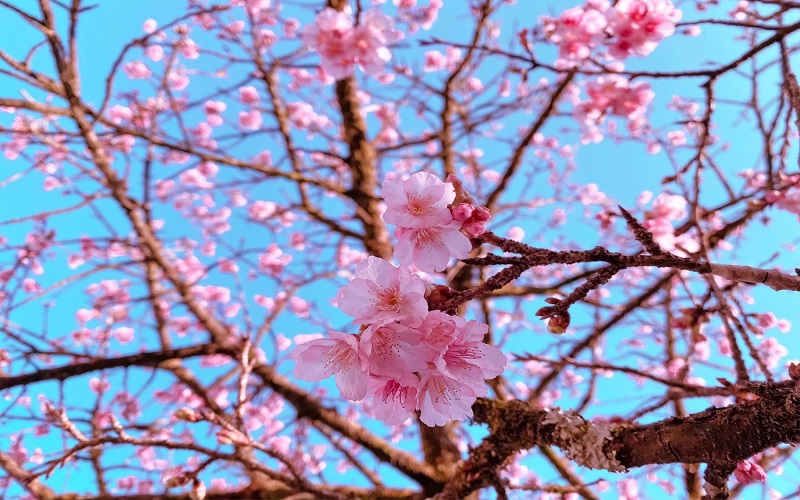 Cherry blossoms are a harbinger of spring.
Cherry blossoms are a harbinger of spring.
 Cherry blossoms have multiple uses beyond their aesthetic appeal.
Cherry blossoms have multiple uses beyond their aesthetic appeal.
Japanese cherry blossoms are truly remarkable, and we hope that through this article, you have gained valuable insights into their significance, beauty, and the art of cultivating them.
Effective Skincare Tips for Oily Acne-Prone Skin in Summer
 Skincare Tips for Oily Acne-Prone Skin in Summer’>
Skincare Tips for Oily Acne-Prone Skin in Summer’>The summer months can be a difficult time for individuals with acne-prone skin. To help reduce breakouts and maintain healthy skin, here are several effective skincare tips for keeping oily skin in check.













